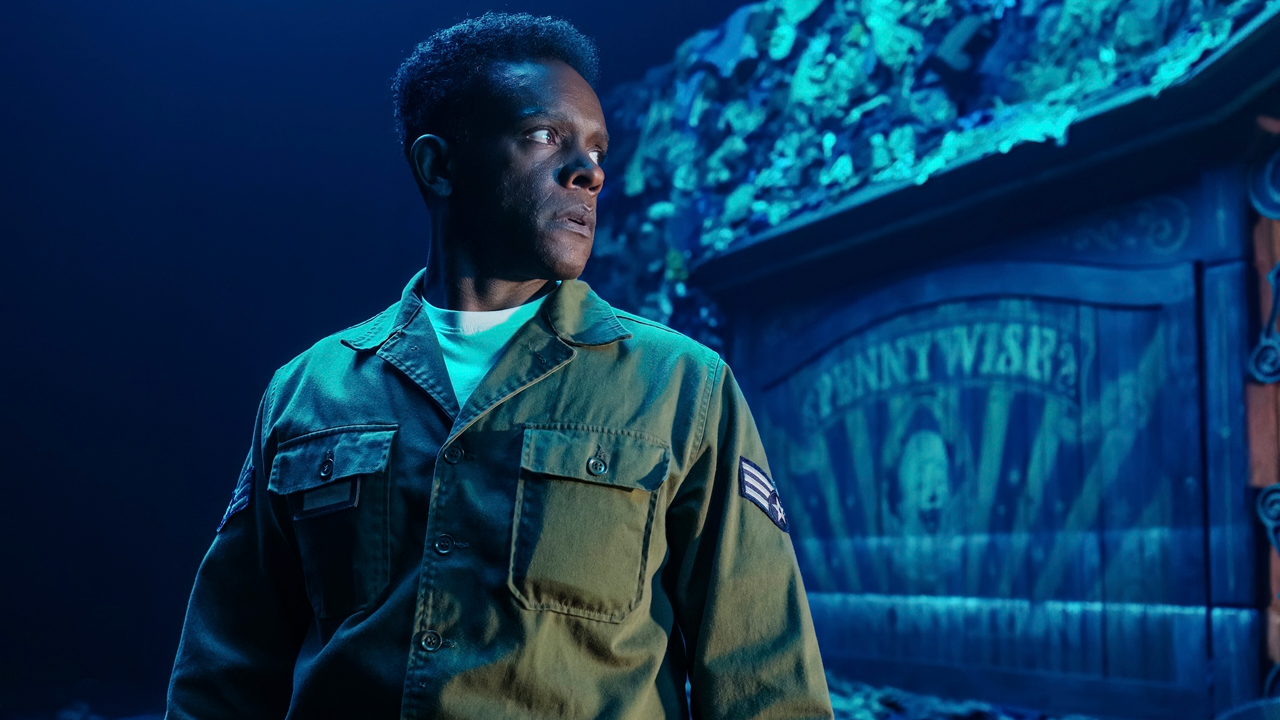How Each Marvel Movie Leads Into Captain America: Civil War
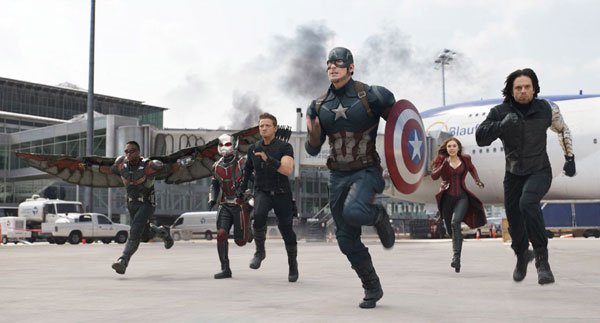
Joe and Anthony Russo’s Captain America: Civil War caps off the trilogy that began with Joe Johnston’s Captain America: The First Avenger back in 2011, but it is so much more than just another film about Chris Evans’ Steve Rogers. In fact, there are key elements of the movie that can be traced back to just about every single Marvel Studios title that has come before it, really giving it the sense that things have all been leading to this point (even when there’s still so much more to go). Of course, this means that having a refresher course on the Marvel Cinematic Universe would be quite useful, so that’s exactly what we’re here to provide.
Below you’ll find that we’ve gone movie-by-movie, starting with 2008’s Iron Man, and have examined exactly how each title has influenced the MCU to this point and what elements fans can expect to see pay off in Captain America: Civil War. Enjoy the read, but be warned that each section contains major spoilers for each individual title, but NO SPOILERS for Civil War itself!
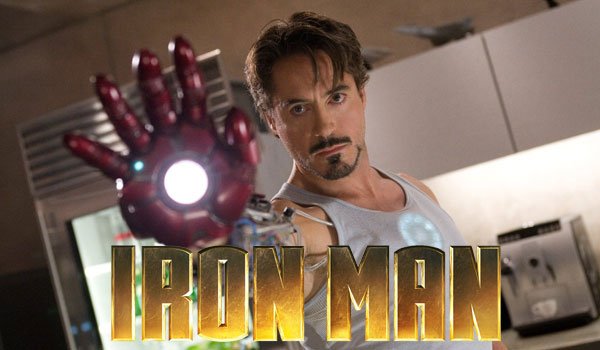
Iron Man
Iron Man wasn’t the first superhero to exist in the Marvel Cinematic Universe (we’ll get more into that later), but his arrival on the scene did have an incredibly significant impact: it ushered in the "Age of Heroes." When Robert Downey Jr.’s Tony Stark stood on that podium and announced his secret identity, he both directly and indirectly ushered in an entirely new age for the world. It’s an age that would see the collection of the Avengers, and eventual debate over the Sokovia Accords in Captain America: Civil War.
Of course, we can’t talk about Iron Man without also talking about the arc of Tony Stark – who begins the Jon Favreau-directed film as a billionaire playboy without a care in the world, and over the course of the story finds his humanity. He gets an up-close view at the work of some very bad people, and he can’t fight the urge to do something about it, disregarding international laws, no-fly zones, and military regulations entirely. Tony Stark gets a taste of what it’s like to protect the world in the movie, seeding what would ultimately become an obsession for the armor-clad hero.
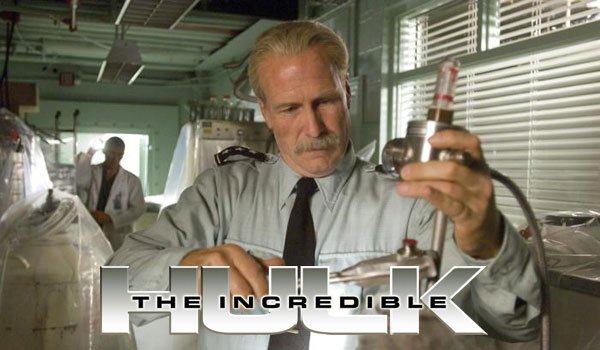
The Incredible Hulk
With The Hulk set to show up in Thor: Ragnarok, Captain America: Civil War doesn’t feature Marvel’s famed big green monster, but it does feature one very important character from Louis Leterrier’s The Incredible Hulk: Thaddeus ‘Thunderbolt’ Ross (as played by William Hurt, who is the only lead actor from the Phase One movie to reprise his role to this point). In Civil War, he has become the nation’s Secretary of State and in charge of getting the Avengers to sign the Sokovia Accords, and this dynamic was something very much introduced in The Incredible Hulk.
Your Daily Blend of Entertainment News
Being the father of Betty Ross, Bruce Banner’s love, Thaddeus Ross obviously has some very personal issues with The Hulk, but the truth is that his feelings towards super-humans is pretty universal: he wants control over all of them. He is desperate to get Hulk under his thumb for use for military purposes, and he doesn’t hesitate at all to inject Super Solider Serum into Tim Roth’s Emil Blonsky (a soldier under his command). It may not be as direct as what he does in The Incredible Hulk, but his motivations in Captain America: Civil War essentially remain the same.
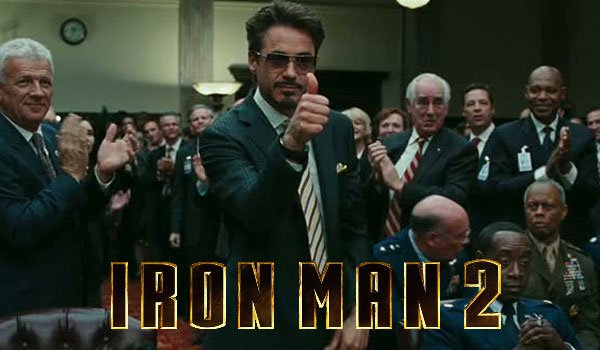
Iron Man 2
What’s fantastic about looking at Jon Favreau’s Iron Man 2 through the lens of Captain America: Civil War is that it shows just how far Tony Stark has come as a character, and how events have drastically changed him. The first act of the Marvel Cinematic Universe’s first sequel has the billionaire in the Iron Man suit fighting for his right to keep his armor out of government hands and to basically privatize global security – literally the opposite of his position in the Joe and Anthony Russo-directed movie. Of course, this is at a time when he was working as a one-man response team and managing to avoid large-scale collateral damage.
While it doesn’t exactly assemble a team, Iron Man 2 also notably (and arguably notoriously) does its part to feed in more Avengers-related material to the Marvel Cinematic Universe. Samuel L. Jackson’s Nick Fury is present in recruiting mode, and two more future team members are introduced in Black Widow (Scarlet Johansson) and War Machine (Don Cheadle, replacing Terrence Howard and actually getting to put on the armor). It’s worth noting that both of these heroes wind up fighting on Iron Man’s side in Captain America: Civil War.
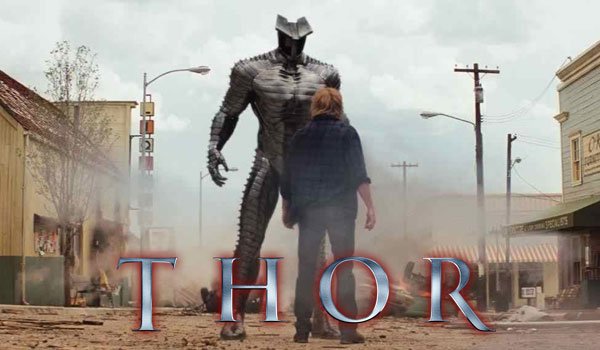
Thor
Iron Man ushered in the "Age Of Heroes" in the Marvel Cinematic Universe, but it’s sad to say that it was Chris Hemsworth’s Thor that combined that period with a brand new age of paranoia. Though it wasn’t actually the fault of the God of Thunder, his presence on Earth led to the decimation of a small town in New Mexico – an event that could be cited as the first example of really large-scale destruction that would lay the foundation for the argument put forward in advancing the Sokovia Accords in Captain America: Civil War.
Then there’s the chain reaction that was started in the Kenneth Branagh film to consider. As noted by Nick Fury in The Avengers, Thor’s arrival caused S.H.I.E.L.D. to start looking into more powerful weaponry; which unknowingly advanced the strength of HYDRA; which led to the fall of S.H.I.E.L.D.; and in turn made Captain America incredibly nervous about who to trust in the modern world. But we’ll be getting into all of that in more detail as this feature continues and we start getting into more Phase Two action…
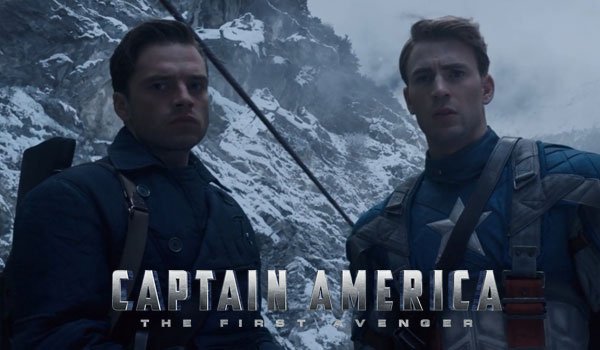
Captain America: The First Avenger
As the first film in the trilogy that’s capped with Captain America: Civil War, the connections here should be fairly obvious. Joe Johnston’s Captain America: The First Avenger was the film that first introduced audiences to Chris Evans’ version of Steve Rogers, chronicling his journey from feeble kid to World War II super soldier. The movie also firmly establishes the brother-like bond between Steve and Sebastian Stan’s Bucky Barnes – not only before the transformation when they’re together in Brooklyn, but also when they are on the frontlines together and after Bucky’s "death."
There is another aspect of Captain America: The First Avenger to consider as well, which is the relationship between Steve Rogers and Howard Stark, Tony Stark’s father. The scientist was a close associate of Cap’s during World War II – even providing him with his famous shield – and based on everything we’ve heard in subsequent films, the older Stark was quite in awe of the soldier. In a sense, Tony has spent his entire life living in Steve’s shadow, and while this has never been beneficial in their relationship, it obviously comes to a head in Captain America: Civil War.
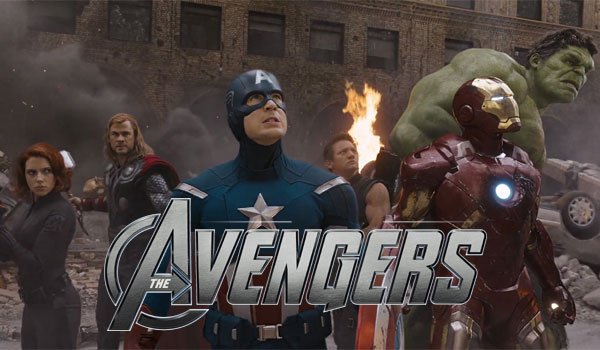
The Avengers
Before Joss Whedon’s The Avengers, the Marvel Cinematic Universe existed as a mix of connected, but also fairly disjointed comic book movies centering around a handful of cool characters. But, of course, it was the 2012 blockbuster that brought them all together for the first time in spectacular fashion. It was the first time that we got to see live-action versions of heroes chatting and relating to each other, and it was the establishment of a wide variety of key interpersonal dynamics that gives the film its strongest connection to Captain America: Civil War. Not to mention that the Chitauri Invasion of New York completely escalated all of the feelings of fear and paranoia in the world that really began back with Thor.
Not only does The Avengers key us in to close relationships like the one between Black Widow and Jeremy Renner’s Hawkeye, but it’s also the first title in the franchise to preview the conflict stirring between Captain America and Iron Man. Funny enough, this divergence is caused by feelings that will reverse themselves by the time Civil War comes up – Cap taking issue with shell head’s cavalier attitude in time of crisis and unwillingness to follow S.H.I.E.L.D.’s orders – but there’s also Tony’s aforementioned legendary daddy/jealousy issues that automatically creates friction.
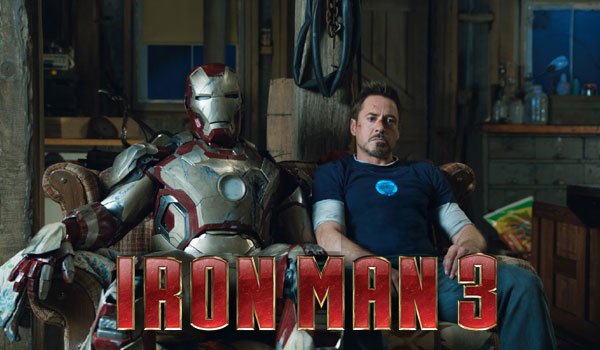
Iron Man 3
Remember that wild, fun-loving, risk-taking playboy you all loved from Iron Man and Iron Man 2? Well, by the time Shane Black’s Iron Man 3 rolls around, what audiences get is a completely different Tony Stark. Sure, he still knows how to throw around a quip or two, but he has been left critically emotionally damaged by his experience fighting alongside The Avengers, the battle with the Chitauri, and his trip into space. He’s suffering from nightmares and panic attacks as a result of post-traumatic stress disorder, and his desire to protect the world goes into full-blown overdrive.
Iron Man 3 isn’t the last time that we see Tony Stark before the events of Captain America: Civil War, but the film does have a key part in defining how he has sincerely changed as a human being since we first met him in 2008. In the blockbuster, Tony’s mania results in him designing nearly 40 new kinds of armor, each one not only created to serve a specific purpose and be useful in a particular situation, but even flies around on its own. His paranoia has increased, and he’s ready for anything the universe is ready to throw at him. It’s true the end of the film has him saying that he’s going to leave that paranoia behind in favor of a safer, better life with Gwyneth Paltrow’s Pepper Potts, but obsessions and addictions aren’t really that easy to shake.

Thor: The Dark World
Due to the fact that there aren’t any Thor characters in Captain America: Civil War, the connection between it and Alan Taylor’s Thor: The Dark World is certainly one of the weaker ones amongst titles in the Marvel Cinematic Universe. That being said, events in the film have similar effects on the Marvel Cinematic Universe that the Kenneth Branagh movie did, which is to say that it just escalated the amount of weirdness and paranoia in the world.
Put yourself in the shoes of a general person in the Marvel Cinematic Universe at Thor: The Dark World point in the larger timeline. The Destroyer in New Mexico was terrifying, and the Chitauri invasion of New York was catastrophic, and now giant spaceships are landing in London and unloading aliens who wish to bring the universe into darkness. It’s an increasingly scary experience living in the fictional world, and never knowing A) when the next bit of devastation is coming and B) whether or not there will be anyone there to do something about it. It all adds to an atmosphere that will eventually lead to the creation of Captain America: Civil War’s Sokovia Accords.
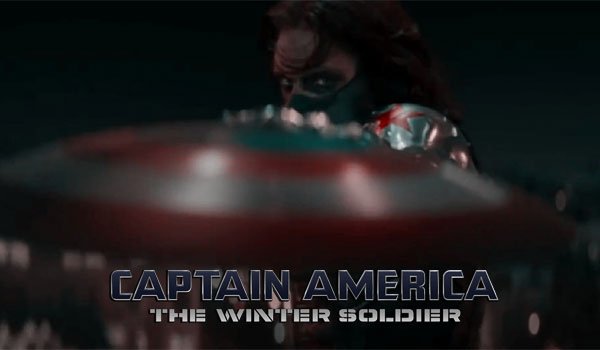
Captain America: The Winter Soldier
At the end of the day, Captain America: Civil War is most accurately a sequel to Joe and Anthony Russo’s political thriller-themed Captain America: The Winter Soldier that also happens to continue a lot of threads from around the Marvel Cinematic Universe. At the core of the new movie’s story is still the relationship between Steve Rogers and Bucky Barnes, which, of course, transforms completely in Winter Solider, when Barnes becomes the titular Hydra-brainwashed assassin. Steve first finds himself making hard decisions about his friend in the 2014 movie, learning about some really terrible things he's done in the process, and that continues in Civil War, with Black Widow and Anthony Mackie’s Falcon back in the fray as well (the latter ending Winter Soldier by pledging to help Cap find Bucky).
On beyond just the character relationships, there are also massive plot elements in Captain America: The Winter Soldier that have an important influence on its sequel – specifically the fall of S.H.I.E.L.D. The effect of this is two-fold. On one front, it’s another example of superheroics leading to some serious destruction. More importantly, though, it also manages to completely decimate any faith Captain America has in the modern world and its government agencies. If he wasn’t at ground zero during the fall of S.H.I.E.L.D., it’s possible that he would have been willing to sign the Sokovia Accords.
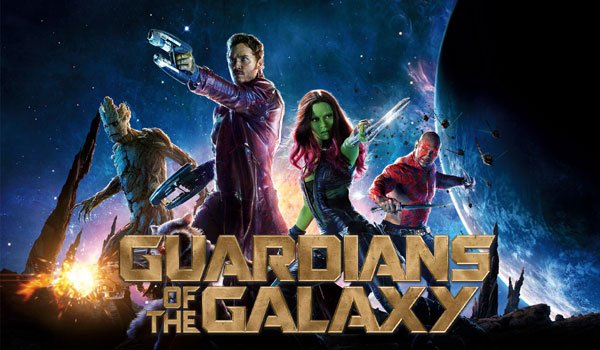
Guardians Of The Galaxy
James Gunn’s Guardians of the Galaxy is a very different Marvel Cinematic Universe film. The only Earthbound scenes featured in the movie are over by the time that the title card appears on screen, and the film more serves to build up the cosmic side of the landscape instead of what’s happening on our blue and green marble. As a result, the connection between it and Captain America: Civil War is a bit more tangential than the other titles in the franchise, but there definitely is an argument to make that it had a certain effect on the thinking at Marvel that helped mold their 13th feature.
While Guardians of the Galaxy does go over how the titular team is formed, what it doesn’t bother with is big origin explanations for all of its characters – instead letting the audience figure out who these people/aliens are as the story unfolds. It’s a much less belabored approach, and just as effective. Similarly, in Captain America: Civil War both Chadwick Boseman’s T’Challa/Black Panther and Tom Holland’s Peter Parker/Spider-Man are thrown into the mix without exposition and flashback-filled explanations of who they are, what they can do, and so forth. Guardians of the Galaxy arguably paved the way for that.
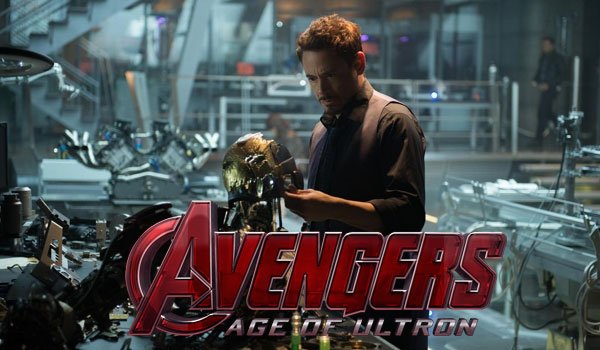
The Avengers: Age Of Ultron
Some fans may not like hearing this, but Iron Man is really one of the central antagonists in Joss Whedon’s The Avengers: Age of Ultron. It’s the film where his aforementioned deep obsession with protecting the world really comes to a head, as, in an act that every classic mad scientist would applaud, he brings an artificial intelligence to life and nearly destroys the world as a result. It’s true that the character doesn’t experience the consequences of this act in the 2015 blockbuster (driving away in his fancy car), but the destruction of Sokovia at the hands of James Spader’s Ultron is something that Tony Stark is forced to face in Captain America: Civil War, and it’s his guilt surely has a factor in his support of the Accords.
In addition to some more featured head-butting between Captain America and Iron Man, those threads are the most important continued from The Avengers: Age of Ultron to Captain America: Civil War, but we can’t ignore the basics either! It’s at the end of Whedon’s movie that a brand new Avengers team is assembled, including Captain America, Black Widow, Scarlet Witch, Falcon, War Machine, and Paul Bettany’s Vision, and it’s this team that is still assembled at the start of Marvel’s latest chapter.
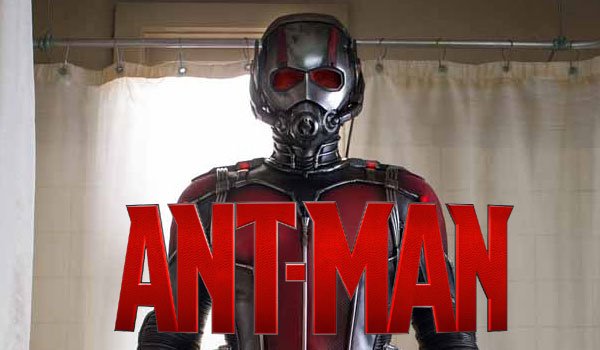
Ant-Man
For a Phase Two movie in the Marvel Cinematic Universe, Peyton Reed’s Ant-Man really mostly exists in its own little pocket of the world, but there is, of course, one major contribution it has that helps lead into Captain America: Civil War: the introduction of Paul Rudd’s Scott Lang as the titular insect-controlling hero. In the new film, he is recruited by Captain America and Falcon to help them in their rebellion against the Sokovia Accords, and Ant-Man tells the entire story of how Lang came to be his superhero self (not to mention how he wound up gaining ties to the flying Avenger).
Ant-Man establishes that Scott Lang is the exact kind of person who will rebel against the law if it’s in support of a cause that he believes in, and so it makes perfect sense that he would align himself with Captain America during the time of great debate. On top of that, Hank Pym really has no love for the Stark family thanks to the fact that Howard Stark and S.H.I.E.L.D. tried to replicate his research, and one can imagine that Scott had no issue adopting this sentiment.

Eric Eisenberg is the Assistant Managing Editor at CinemaBlend. After graduating Boston University and earning a bachelor’s degree in journalism, he took a part-time job as a staff writer for CinemaBlend, and after six months was offered the opportunity to move to Los Angeles and take on a newly created West Coast Editor position. Over a decade later, he's continuing to advance his interests and expertise. In addition to conducting filmmaker interviews and contributing to the news and feature content of the site, Eric also oversees the Movie Reviews section, writes the the weekend box office report (published Sundays), and is the site's resident Stephen King expert. He has two King-related columns.
